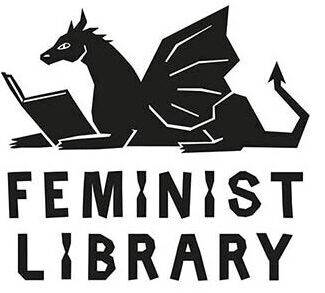Text by Taylor Gardner
‹ Return to Manifesto & principles

Transnational Journeys: An archival exploration of feminist posters that transcend borders at the Feminist Library
Soy mujer y no soy débil // I am a woman and I am not weak
Mare Advertencia Lirika, Soy yo
I take what I want
shaking my sacred hair dancing out taboo
I mark out the space I am
with knives
Chrystos, Give Me Back
Within feminist histories, music and storytelling have long coexisted as vital tools for liberation. Rooted in indigenous traditions, storytelling is a method of rewriting silenced tales back into existence, amplifying shunned voices, and cultivating our imaginations to counter dominant narratives and widely accepted ‘truths’. It is a way of speaking back to the erasure, oversimplification and universalisation of women’s experiences and a medium for women to retell those stories in their own words. Storytelling is a method of world-making and a form of resistance that encompasses oral narrative, visual arts, folktales, poetry, recipes passed down from grandmother to mother to daughter, old photos that outlive multiple generations and rhythms and dances no one remembers where they first learned.
The Transnational Journeys archive brings together different examples of feminist resistance in the form of protest posters. Collectively, the posters demonstrate how varying aesthetics and contexts shape and complement one another through intersectional, anti-capitalist, anti-colonial praxis, challenging the monolithic standpoint liberal feminism often takes. In this multicoloured pen and pencil portrait of Oaxacan rapper Mare Advertencia Lirika, the sketched technique and collage-like layout encapsulates the grassroots, DIY spirit of transnational feminist protest. The hand-drawn, scribbled lines exude an unpolished version of feminism – a feminism free from commercialisation and white-washing: a GOOP-esque admonition that ‘selfcare is warfare’ that fails to acknowledge the complexities of that battle, or a girlboss roar to ‘break the glass ceiling’ and silence when it comes to conversations on women’s labour within prison walls.
With a raised fist, Mare’s roughly-sketched side portrait, rainbow colour palette and raw style tell us that revolutionary work can be playful and imperfect. The sparse wording makes one request: to ‘fight for social justice’, a request echoed in Mare’s song lyrics. As the first female Oaxacan rapper, she began rapping at 16, a natural transition from her fondness of poetry and protest music. Though a fan of US rap as a teenager, she gained most inspiration from Mexican and Spanish rap and her songs are inseparable from her feminist politics. With lyrics that ring of revolution, she shines a light on the violence the Mexican state enacts on indigenous communities, the government’s disenfranchisement of her own people from social services, and the institutionalised sexism in her own community.
Mare is Zapoteca, one of two predominating indigenous groups in the Oaxaca Valley of southern Mexico, who have long histories of resisting colonial and state powers. She uses hip hop as a tool to continue this legacy and confront machista ideals and speak back to sexism. Though the prevalence of misogyny and homophobia has made the marriage of feminism and hip hop a site of controversy, by using the genre to critique issues of exploitation, displacement and systemic violence, Mare contributes to a lineage of women challenging these norms. As worded by Joan Morgan in her seminal 1999 book on black feminism and hip hop, When Chickenheads Come Home to Roost, ‘Truth is what happens when your cumulative voices fill in the breaks, provide the remixes, and rework the chorus.’ By speaking her own truth and sharing the nuances of her experience as a Zapotec woman, feminist, daughter, sister and artist, Mare provides the remixes and reworks the chorus with fervour.
Bio
Taylor Gardner is a copywriter working in education and a staff writer for The Plus Paper, based in London. Originally from Glasgow, she completed her BA in English Literature at University of Strathclyde and her MA in Gender, Media and Culture at Goldsmiths University of London. She is passionate about liberation politics, the arts, and writing as a tool for connection.
@taygardnerx
she/her


